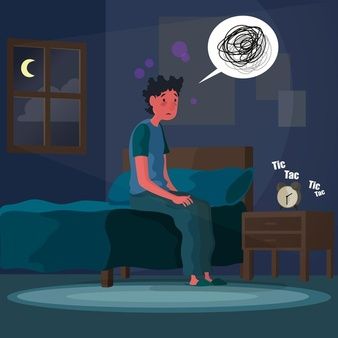Boost productivity with quality sleep by improving your focus, memory, and decision-making. When you make boosting productivity with quality sleep a priority, your performance at work or school improves significantly. Adopting healthy sleep habits will help you maximize daily efficiency and make the most out of your rest.
The Importance of Sleep in Productivity
Sleep is a biological necessity that influences all aspects of life, including professional and academic performance. Poor rest can lead to chronic fatigue, workplace errors, reduced creativity, and a higher risk of illnesses. Numerous studies have shown that well-rested individuals perform better, solve problems more effectively, and experience less stress.
Sleep consists of multiple phases, with the REM phase being the most important. This stage consolidates memories and stimulates creativity. If disrupted, the brain struggles to organize information properly, affecting decision-making and mental agility.
Benefits of Quality Sleep

- Better concentration and focus: Sleeping 7 to 9 hours allows the brain to process information efficiently, improving attention.
- Optimized memory: Restful sleep enhances memory retention and learning, crucial for students and professionals.
- More energy and less fatigue: Waking up well-rested reduces daytime exhaustion, allowing tasks to be completed more effectively.
- Improved mood: Quality sleep lowers stress and irritability, fostering a healthier work and personal environment.
- Enhanced creativity and problem-solving skills: Proper rest promotes creativity and sound decision-making.
- Better physical health: Sleep strengthens the immune system, regulates metabolism, and prevents cardiovascular diseases.
Tips to Improve Sleep Quality

1. Maintain a Regular Sleep Schedule
Establishing a consistent sleep routine helps regulate the body’s internal clock. Try to go to bed and wake up at the same time every day, even on weekends.
2. Avoid Caffeine and Electronic Devices Before Bed
Caffeine consumption and screen exposure before bedtime can interfere with melatonin production, the hormone that regulates sleep. Opt for relaxing herbal teas or light reading instead.
3. Create a Comfortable Sleep Environment
Ensure your bedroom is conducive to sleep. Maintain a pleasant temperature, use blackout curtains to block external light, and minimize noise.
4. Engage in Physical Activity
Exercise is an excellent sleep regulator as it reduces stress and helps release accumulated tension. However, avoid intense workouts right before bed.
5. Relax Before Bedtime
Develop a relaxation routine before sleeping, such as practicing meditation, taking a warm bath, or listening to calming music. This signals your body that it’s time to rest.
6. Maintain a Balanced Diet
Avoid heavy meals before bed, as digestion can interfere with sleep. Opt for light dinners with protein and complex carbohydrates.
7. Reduce Stress and Anxiety
Stress is one of the biggest enemies of sleep. Try techniques like deep breathing or yoga to release accumulated tension.
Effects of Sleep Deprivation on Productivity

Lack of sleep can have severe consequences on productivity and overall well-being. Some common effects include:
- Reduced cognitive performance: Poor sleep affects memory, creativity, and problem-solving skills.
- Higher risk of mistakes: Fatigue increases the likelihood of errors at work or school.
- Lack of motivation: Without adequate rest, energy levels and motivation to face the day significantly decrease.
- Health problems: Sleep deprivation raises the risk of cardiovascular diseases, obesity, and metabolic disorders.
The Impact of Sleep on Different Areas

At Work
Quality sleep boosts workplace productivity by enhancing concentration over extended periods. Companies that promote employee sleep well-being report higher satisfaction and performance levels.
In Education
Students who sleep well have better memory, greater focus, and superior academic performance. Lack of sleep reduces information retention and test performance.
In Personal Life
Good sleep improves relationships by reducing irritability and stress. It also influences decision-making and the ability to tackle daily challenges.
Tools and Resources for Better Sleep
If you have trouble sleeping, consider using relaxation apps, white noise machines, essential oils, or light therapy. Smart devices like sleep-tracking watches can also help identify patterns and improve rest.
Conclusion
Improving sleep quality is an investment in your health and productivity. By following these tips, you’ll notice a positive change in your performance and well-being. Boost productivity with quality sleep as part of your routine for a more balanced life.





